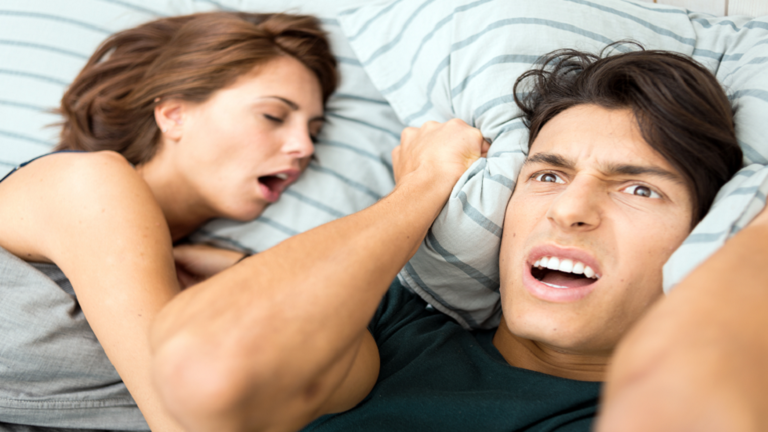A study found that snoring is more common in women after menopause due to hormone deficiency.
Researchers in Norway found that oestrogen and progesterone were not to blame. These are the hormones that are replaced in women with HRT, raising hopes that it can help with snoring and sleep apnea as well.
The research included 774 women given a sleep questionnaire to determine whether they were likely to suffer from obstructive sleep apnea.
To meet the criteria, they needed snoring, often suffering from either irregular breathing, gasping or snoring, which had upset others in the past 12 months.
Blood tests showed that if women are able to double the amount of a type of oestrone called oestrone in their body, they are 19% less likely to be suspected of obstructive sleep apnea.
If they can double their progesterone, they are 9% less likely to have the condition.
There is still limited evidence to suggest that HRT can reduce the risk of this condition, so further research is needed.
But Dr. Kay Trebner, Senior Study Author, University of Bergen, said: "This study is exciting because it suggests that HRT can be a solution for women with snoring and sleep apnea due to menopause.
It is important because sleep apnea is associated with serious conditions such as heart disease and stroke. We already know that HRT can improve the temporary symptoms of menopause such as hot flushes and night sweats, help with potentially more serious effects such as osteoporosis, and now it can help many women with severe difficulty snoring and struggling to breathe at night. "
The study, published in the journal PLOS One, looked at women aged 40 to 67 from seven different countries who participated in a European health survey.
Of the 774 post-menopausal women screened, nearly three quarters, or 551, were snorting.
These women were asked three additional questions about the past 12 months to judge whether they could suffer from obstructive sleep apnea, which becomes more common and severe in women after menopause.
Researchers did not directly compare the levels of oestrogen or progesterone in women, which decreases significantly after menopause, causing many unpleasant symptoms.
But their results suggest that doubling oestrogen is associated with a five times lower risk of sleep apnea, and doubling progesterone reduces the likelihood of developing the condition by nine per cent.
This was the case even taking into account factors such as a woman's weight and whether she was a smoker, both of which increased the risk of sleep apnea and snoring.
The researchers suggest that decreasing hormones after menopause may cause increased fat in certain parts of the body, which may increase the risk of sleep apnea, through the deposition of fat in the throat leading to narrowing of the airway.

